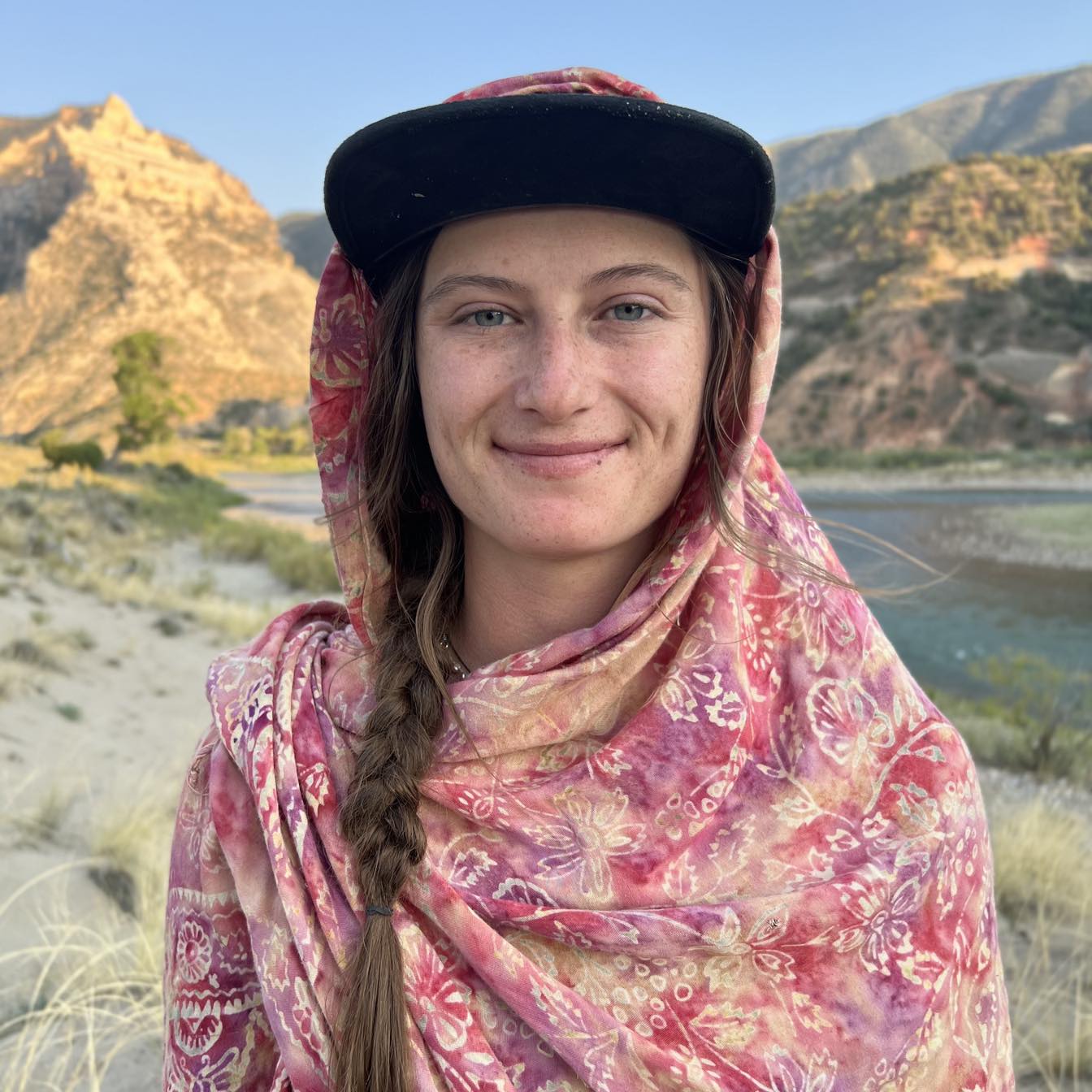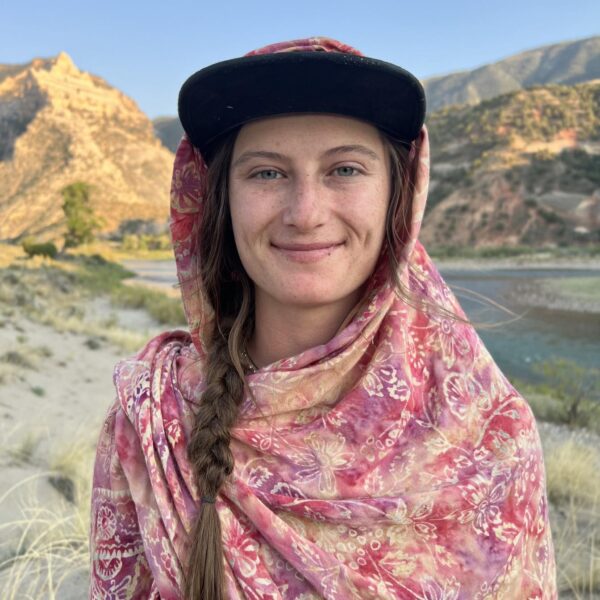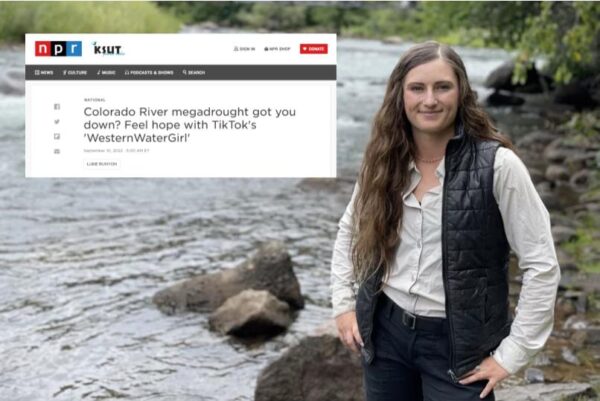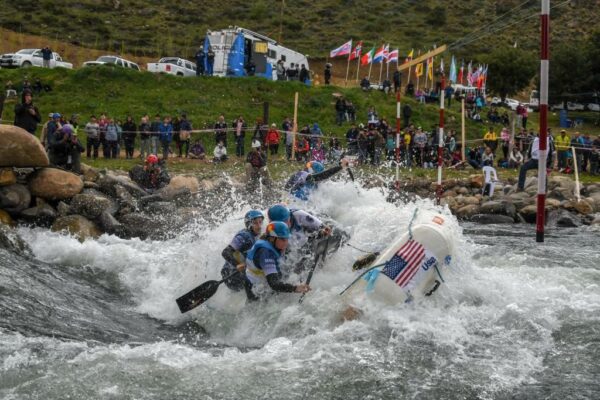
23 May Teal Lehto & “Innovating Our Way Out of a Water Crisis” at Mountainfilm 2023!
Based in Telluride, Mountainfilm celebrates its 45th year in the heart of the San Juan mountains, May 25-29, 2023. This year, the Festival is dedicated to the memory of dear friend and elite mountaineer Hilaree Nelson.
One of the most anticipated talks of the weekend’s Minds Moving Mountains Speaker Series features water rights activist, rafting guide and TikTok sensation Teal Lehto. She is joined by Southern Ute Indian Tribe Council Member Lorelei Cloud and photographer/conservationist Pete McBride to address climate change and water in the West.
Passes to Mountainfilm are here.
Go here for much more about Mountainfilm.
And please scroll down to listen to a podcast featuring Teal Lehto.
Note: Just as we were about to post this story and podcast (originally on April 11), this story broke in The New York Times:
After months of fruitless negotiations between the states that depend on the shrinking Colorado River, the Biden administration on Tuesday proposed to put aside legal precedent and save what’s left of the river by evenly cutting water allotments, reducing the water delivered to California, Arizona and Nevada by as much as one-quarter.
The size of those reductions and the prospect of the federal government unilaterally imposing them on states have never occurred in American history.
Overuse and a 23-year-long drought made worse by climate change have threatened to provoke a water and power catastrophe across the West. The Colorado River supplies drinking water to 40 million Americans as well as two states in Mexico, and irrigates 5.5 million agricultural acres. The electricity generated by dams on the river’s two main reservoirs, Lake Mead and Lake Powell, powers millions of homes and businesses.
But the river’s flows have recently fallen by one-third compared with historical averages…

Across Colorado, snow totals are almost all above average, with most zones at 120 to 140% of normal for this time of year. Snowpack for the upper Colorado River headwaters sits at over 120 percent of normal.
So yes, we hear you and feel you as you ask how can there still be a water crisis in Colorado specifically and the West in general after all the snow (Colorado) and wet (California)?
But the simple fact is this: scientists seem to agree that while this winter’s snow may provide a boost to our reservoirs, the lift is temporary. All that white on our mountains will simply not provide water to fix the Southwest’s long-term, supply-demand imbalance as the beleaguered Colorado continues to grapple with the impacts of climate change and steady demand.
What’s more, according to The Salt Lake Tribune, “…snow totals don’t tell the full story. Scientists look to soil moisture for a clearer picture of how much water will actually reach the places where humans divert and collect it…This year, soil moisture in the mountains is well below average. That could prevent some melting snow from ever reaching the Colorado River…”
Which remains, as the NYT article states, in crisis, shrinking at the hands of climate change and a 23-year “mega-drought” which has created the region’s driest conditions in – wait for it – 180o years. That compromises large cities such as Denver, Phoenix, Salt Lake, Las Vegas and Los Angeles and the agriculture sector. What’s more Lake Mead and Lake Powell, the nation’s two largest reservoirs have dropped to historic lows, and could reach “dead pool” levels in the next two years.
What’s needed is many more years of this year’s heavy snow fall to make a serious dent in the low water levels.
That and activists like Teal:

Teal, credit NPR.
“I’ve definitely been fighting tooth and nail in my comments to explain to people that one year of good snow is not enough to pull us out of a two-decade-long drought. I always try to explain that last year we had 91 percent of average snowpack, but the spring was super hot and dry. We actually ended up with like 58 percent of average flows in the river,” Teal explained in an interview in Westword, continuing:
“Oftentimes, with water in particular, a lot of the officials and policy-makers are so close to the problem that they are physically incapable of zooming out and explaining it in easy-to-understand terms for people…It’s a complicated issue, and there are a lot of caveats, but the overall issue we’re facing is we use too much water, and we’re getting less water. That’s not complicated. … Everyone is going to be impacted by this crisis, so everyone deserves to have some level of understanding of what’s going on.”

For more listen to Teal’s podcast:


Sorry, the comment form is closed at this time.